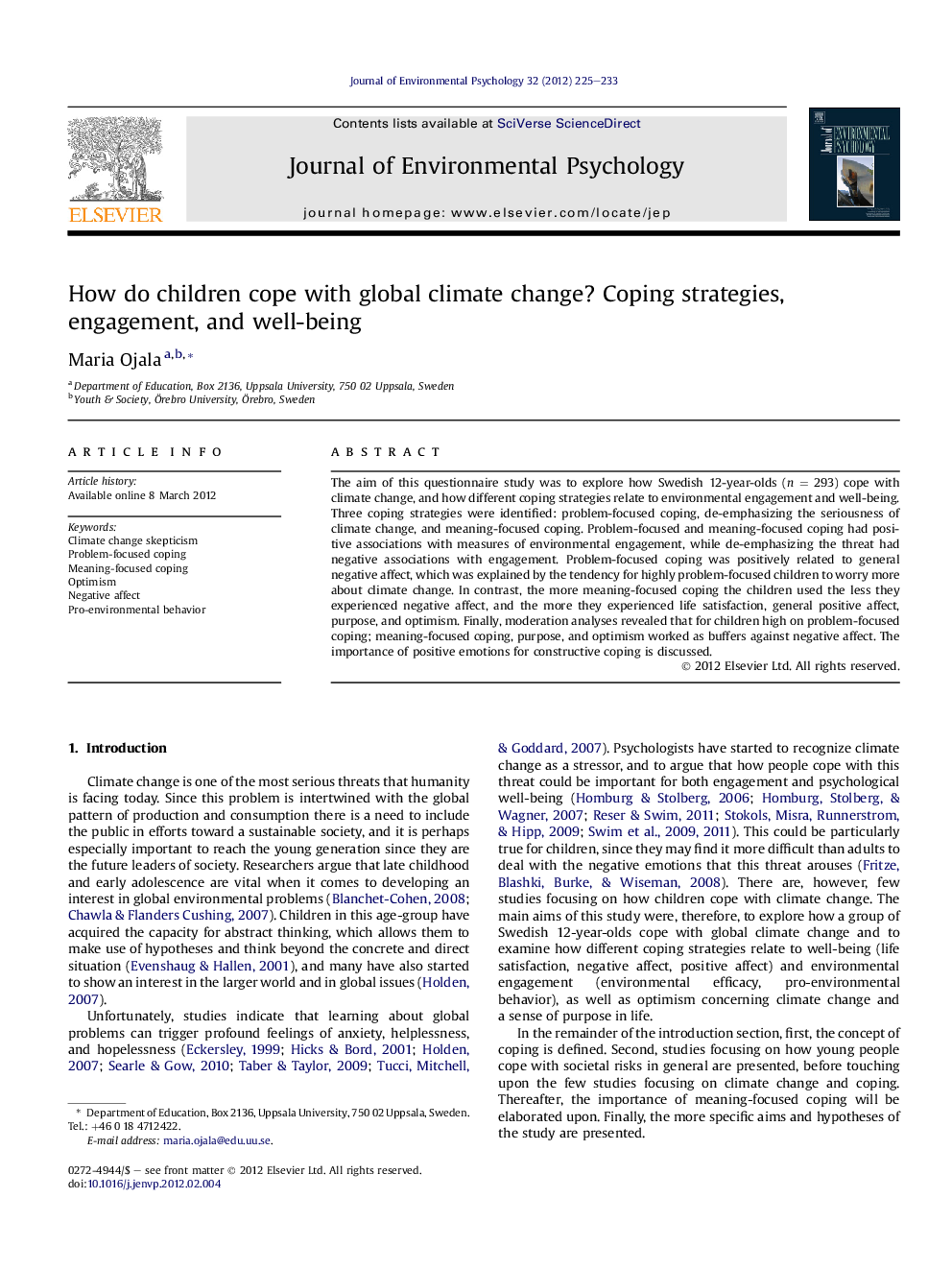| کد مقاله | کد نشریه | سال انتشار | مقاله انگلیسی | نسخه تمام متن |
|---|---|---|---|---|
| 885708 | 912839 | 2012 | 9 صفحه PDF | دانلود رایگان |

The aim of this questionnaire study was to explore how Swedish 12-year-olds (n = 293) cope with climate change, and how different coping strategies relate to environmental engagement and well-being. Three coping strategies were identified: problem-focused coping, de-emphasizing the seriousness of climate change, and meaning-focused coping. Problem-focused and meaning-focused coping had positive associations with measures of environmental engagement, while de-emphasizing the threat had negative associations with engagement. Problem-focused coping was positively related to general negative affect, which was explained by the tendency for highly problem-focused children to worry more about climate change. In contrast, the more meaning-focused coping the children used the less they experienced negative affect, and the more they experienced life satisfaction, general positive affect, purpose, and optimism. Finally, moderation analyses revealed that for children high on problem-focused coping; meaning-focused coping, purpose, and optimism worked as buffers against negative affect. The importance of positive emotions for constructive coping is discussed.
► How children cope psychologically with global climate change was investigated.
► Problem-focused coping was positively and denial was negatively related to engagement.
► Problem-focused coping was positively associated with general negative affect.
► Meaning-focused coping buffered highly problem-focused children from negative affect.
► As did optimism concerning climate change and a sense of purpose.
Journal: Journal of Environmental Psychology - Volume 32, Issue 3, September 2012, Pages 225–233